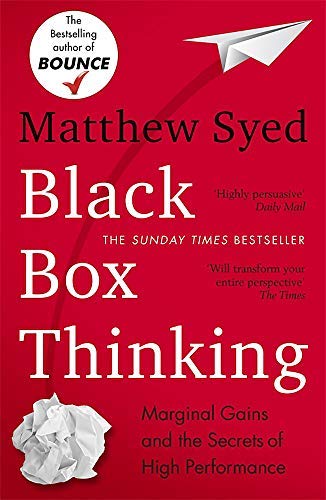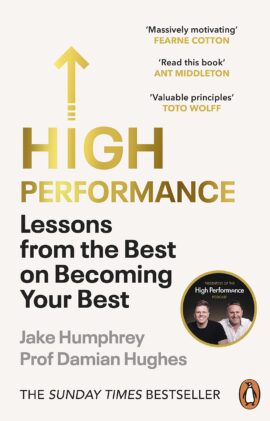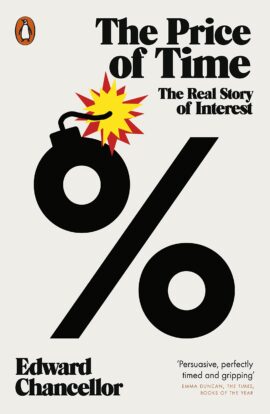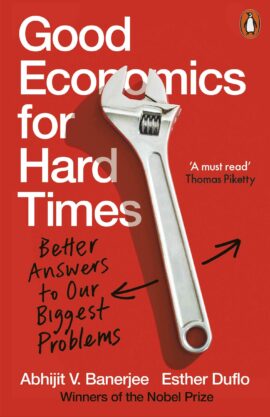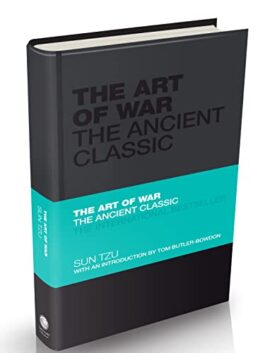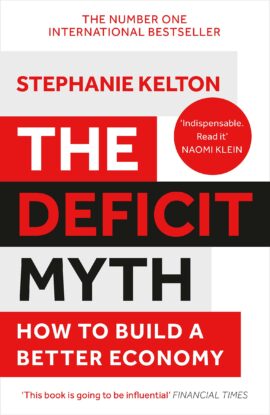«Genius Makers: The Mavericks Who Brought A.I. to Google, Facebook, and the World» a été ajouté à votre panier. Voir le panier
Black Box Thinking
2.530,00 د.ج
Please Read Notes: Brand New, International Softcover Edition, Printed in black and white pages, minor self wear on the cover or pages, Sale restriction may be printed on the book, but Book name, contents, and author are exactly same as Hardcover Edition. Fast delivery through DHL/FedEx express.
7
Items sold in last 3 days
Félicitation ! vous bénéficiez d'une livraison gratuite !
0
People watching this product now!
Estimated delivery dates: août 5, 2025 – août 12, 2025
Description
Please Read Notes: Brand New, International Softcover Edition, Printed in black and white pages, minor self wear on the cover or pages, Sale restriction may be printed on the book, but Book name, contents, and author are exactly same as Hardcover Edition. Fast delivery through DHL/FedEx express.
Informations complémentaires
| Editeur |
|---|
Produits similaires
Masters of Mankind: Essays and Lectures, 1969-2013
2.530,00 د.ج
In this collection of essays from 1969-2013, many in book form for the first time, Noam Chomsky exposes the real nature of state power. With unrelenting logic, he holds the arguments of empire up to critical examination and shatters the myths of those who protect the power and privilege of the few against the interests and needs to the many.Covering like 'Human Intelligence and the Environment', 'Terror, Justice and Self-Defence' and 'The Welfare-Warfare state', this is an indispensable compilation of searing insights into the state of our modern world.In this collection of essays from 1969-2013, many in book form for the first time, Noam Chomsky exposes the real nature of state power. With unrelenting logic, he holds the arguments of empire up to critical examination and shatters the myths of those who protect the power and privilege of the few against the interests and needs to the many.Covering like 'Human Intelligence and the Environment', 'Terror, Justice and Self-Defence' and 'The Welfare-Warfare state', this is an indispensable compilation of searing insights into the state of our modern world.'Arguably the most important intellectual alive' New York Times on Noam Chomsky'Noam Chomsky is a global phenomenon . . . he may be the most widely read American voice on the planet today' NYT Book Review'Will there ever again be a public intellectual who commands the attention of so many across the planet?' New Statesman'The west's most prominent critic of US imperialism . . . the closest thing in the English-speaking world to an intellectual superstar' Guardian
Antifragile
2.990,00 د.ج
Paperback. Pub Date :2013-06-06 Pages: 544 Language: English Publisher: Penguin Books The hottest thinker in the world Bryan Appleyard. Sunday TimesIn The Black Swan. Taleb showed us that highly improbable and unpredictable events underlie almost everything about our world ... Here Taleb stands uncer-tainty on its head. making it desirable. even necessary The antifragile is beyond the resilient or robust The resil-ient resists shocks and stays the same: the antifragile gets better and better.Just as human bones get stronger when subjected to stress and tension. many things in life benefit from stress. disorder. volatility. and turmoil. What Taleb has identified and calls antifragile are things that not only gain from chaos but need it in order to survive and flourish.Whats more . the antifragile is immune to prediction errors and protected from adverse events. Why is the cit...
High Performance
2.530,00 د.ج
The phenomenal Sunday Times bestseller'Massively motivating' Fearne Cotton'A wealth of wisdom' Vex King'Read this book' Ant Middleton High performance isn't born. It's made. This book uncovers the eight essential habits of the world's leading sportspeople, coaches and entrepreneurs. From taking responsibility for your situation to finding your 'Trademark Behaviours', it reveals how the world's highest-achieving people unlocked their potential - and how you can too. Anyone can learn the secrets of high performance.'Full of valuable principles with real-world relevance to people's everyday lives' Toto Wolff'So many different lessons from so many remarkable people' Adam Peaty Drawing on conversations with... Dina Asher-Smith | Steven Bartlett | Tom Daley | Steven Gerrard | Evelyn Glennie | Ole Gunnar Solskjaer | Kelly Holmes | Chris Hoy | Eddie Jones | Siya Kolisi | Frank Lampard | Jo Malone | Matthew McConaughey | Ant Middleton | Tracey Neville | Robin Van Persie | Mauricio Pochettino | Gareth Southgate | Holly Tucker | Jonny Wilkinson | Clive Woodward | Toto Wolff and many more...
The Price of Time
1.950,00 د.ج
*Longlisted for the 2022 Financial Times Business Book of the Year Award*All economic and financial activities take place across time. Interest coordinates these activities. The story of capitalism is thus the story of interest: the price that individuals, companies and nations pay to borrow money.In The Price of Time, Edward Chancellor traces the history of interest from its origins in ancient Mesopotamia, through debates about usury in Restoration Britain and John Law ' s ill-fated Mississippi scheme, to the global credit booms of the twenty-first century. We generally assume that high interest rates are harmful, but Chancellor argues that, whenever money is too easy, financial markets become unstable. He takes the story to the present day, when interest rates have sunk lower than at any time in the five millennia since they were first recorded - including the extraordinary appearance of negative rates in Europe and Japan - and highlights how this has contributed to profound economic insecurity and financial fragility.Chancellor reveals how extremely low interest rates not only create asset price inflation but are also largely responsible for weak economic growth, rising inequality, zombie companies, elevated debt levels and the pensions crises that have afflicted the West in recent years - conditions under which economies cannot possibly thrive. At the same time, easy money in China has inflated an epic real estate bubble, accompanied by the greatest credit and investment boom in history. As the global financial system edges closer to yet another crisis, Chancellor shows that only by understanding interest can we hope to face the challenges ahead.
Good Economics for Hard Times: Better Answers to Our Biggest Problems
2.530,00 د.ج
FROM THE WINNERS OF THE 2019 NOBEL PRIZE IN ECONOMICS'Wonderfully refreshing . . . A must read' Thomas PikettyIn this revolutionary book, prize-winning economists Abhijit V. Banerjee and Esther Duflo show how economics, when done right, can help us solve the thorniest social and political problems of our day. From immigration to inequality, slowing growth to accelerating climate change, we have the resources to address the challenges we face but we are so often blinded by ideology.Original, provocative and urgent, Good Economics for Hard Times offers the new thinking that we need. It builds on cutting-edge research in economics - and years of exploring the most effective solutions to alleviate extreme poverty - to make a persuasive case for an intelligent interventionism and a society built on compassion and respect. A much-needed antidote to polarized discourse, this book shines a light to help us appreciate and understand our precariously balanced world.
The Art of War: The Ancient Classic
2.760,00 د.ج
The original and bestselling leadership book!Sun Tzu's ideas on survival and success have been read across the world for centuries. Today they can still be applied to business, politics and life. The Art of Wardemonstrates how to win without conflict. It shows that with enough intelligence and planning, it is possible to conquer with a minimum of force and little destruction.While most of us will never find ourselves in real battle situations, we all need strategies to operate effectively in work, love and life, we need to be able to manage conflict, and we need to be skilled at dealing with people. The Art of War is a time-tested resource for 'victory' in each of these areas, and has been proven over time.This luxury hardback edition includes an introduction by Tom Butler-Bowdon that draws out lessons for managers and business leaders, and highlights the power of Sun Tzu's thinking in everyday life.
The Deficit Myth: Modern Monetary Theory and How to Build a Better Economy
2.990,00 د.ج
THE INTERNATIONAL BESTSELLER'Kelton has succeeded in instigating a round of heretical questioning, essential for a post-Covid-19 world, where the pantheon of economic gods will have to be reconfigured' Guardian'Stephanie Kelton is an indispensable source of moral clarity ... the truths that she teaches about money, debt, and deficits give us the tools we desperately need to build a safe future for all' Naomi Klein'Game-changing ... Read it!' Mariana Mazzucato'A rock star in her field' The Times'This book is going to be influential' Financial Times'Convincingly overturns conventional wisdom' New York TimesSupporting the economy, paying for healthcare, creating new jobs, preventing a climate apocalypse: how can we pay for it all? Leading economic thinker Stephanie Kelton, shows how misguided that question is, and how a radical new approach can maximise our potential as a society. Everything that we've been led to believe about deficits and the role of money and government spending is wrong. Rather than asking the self-defeating question of how to pay for the crucial improvements our society needs, Kelton guides us to ask: which deficits actually matter?
